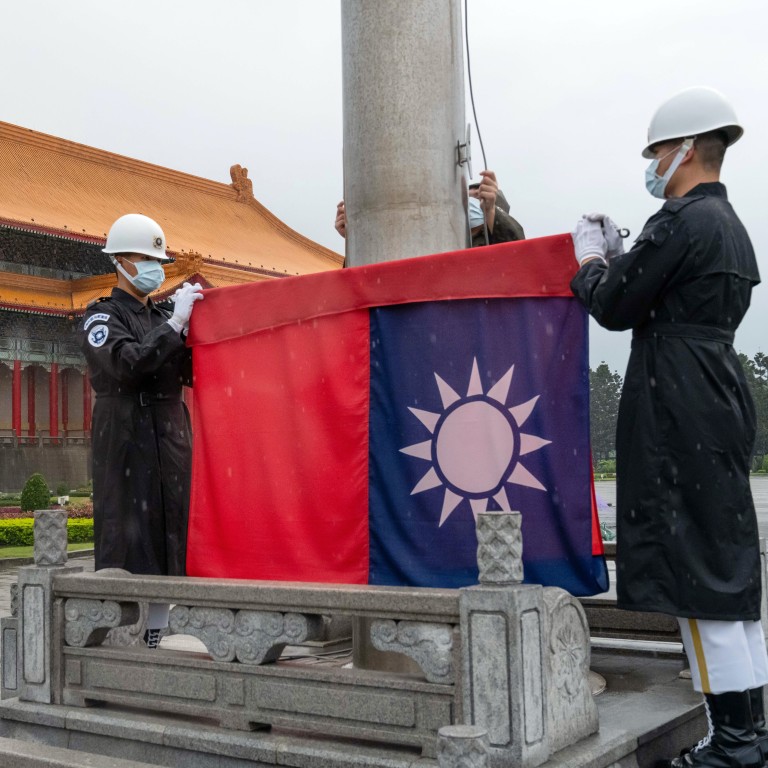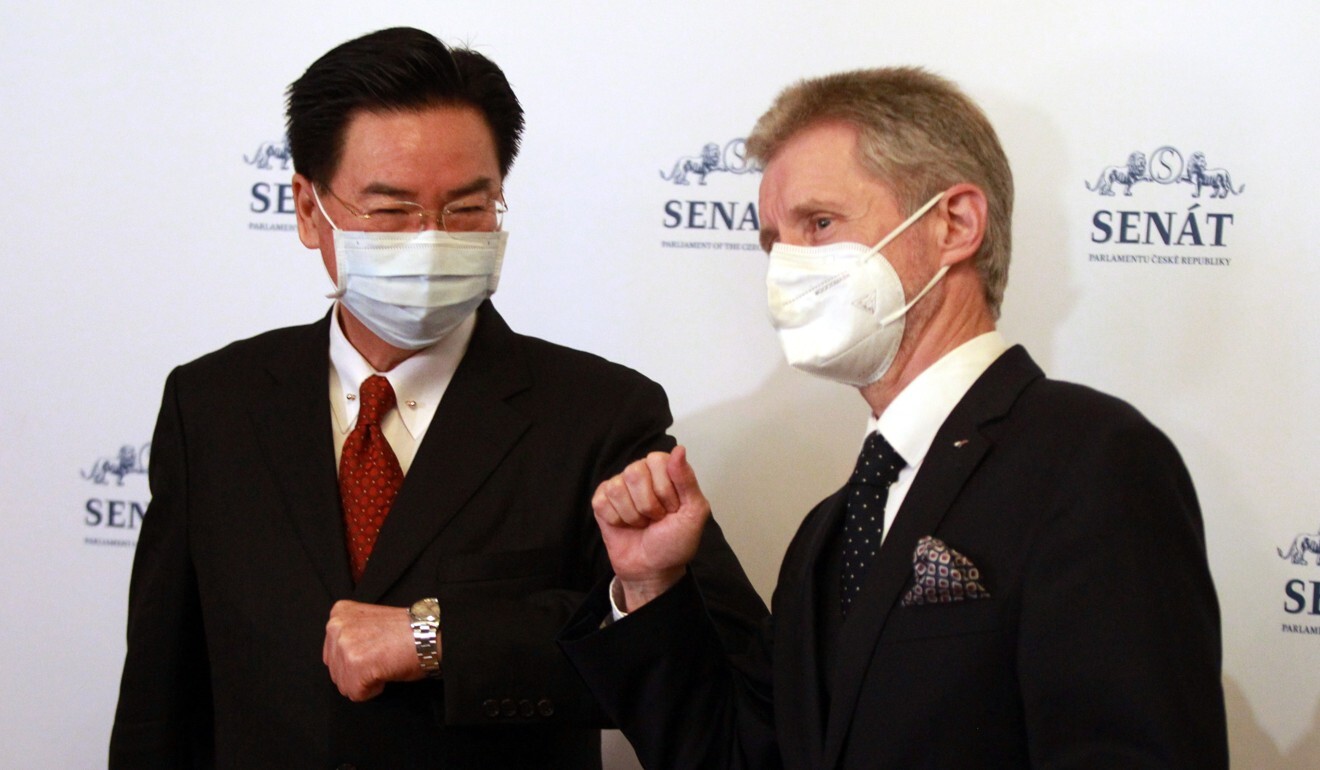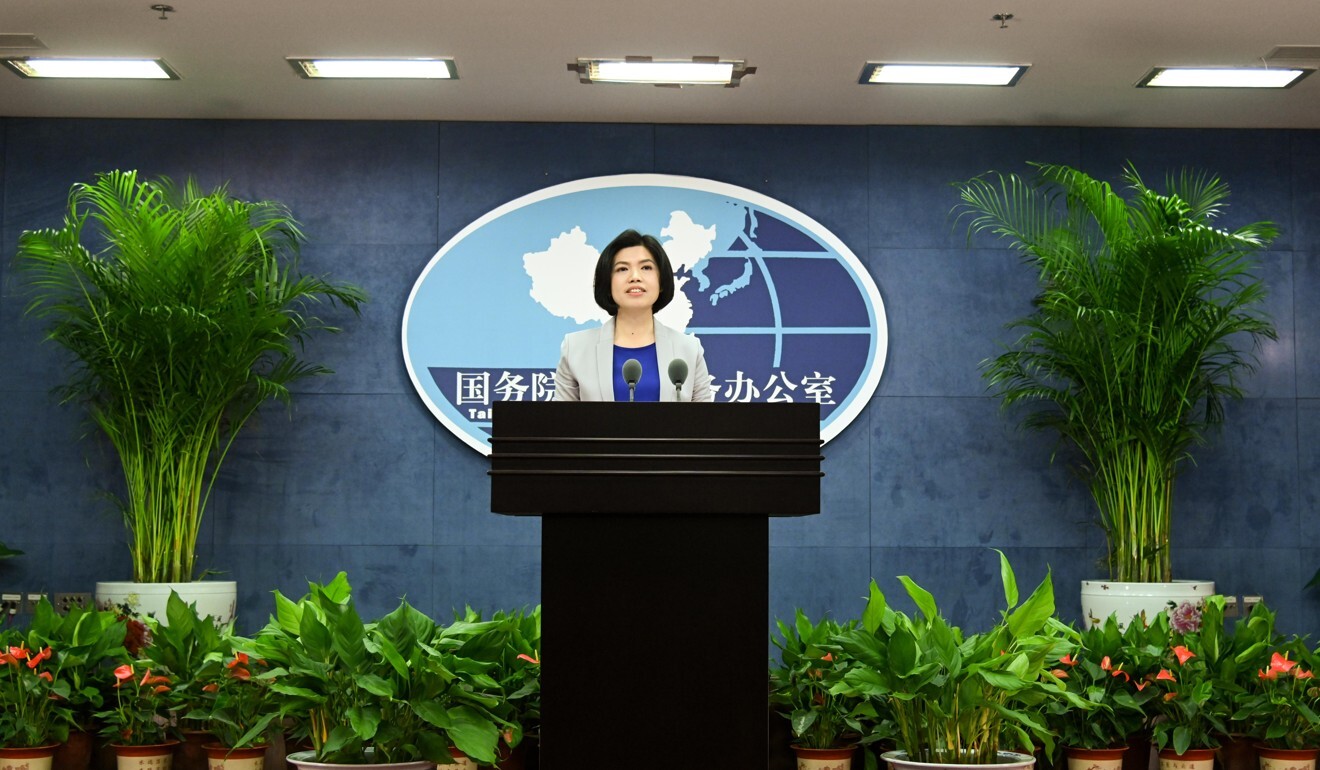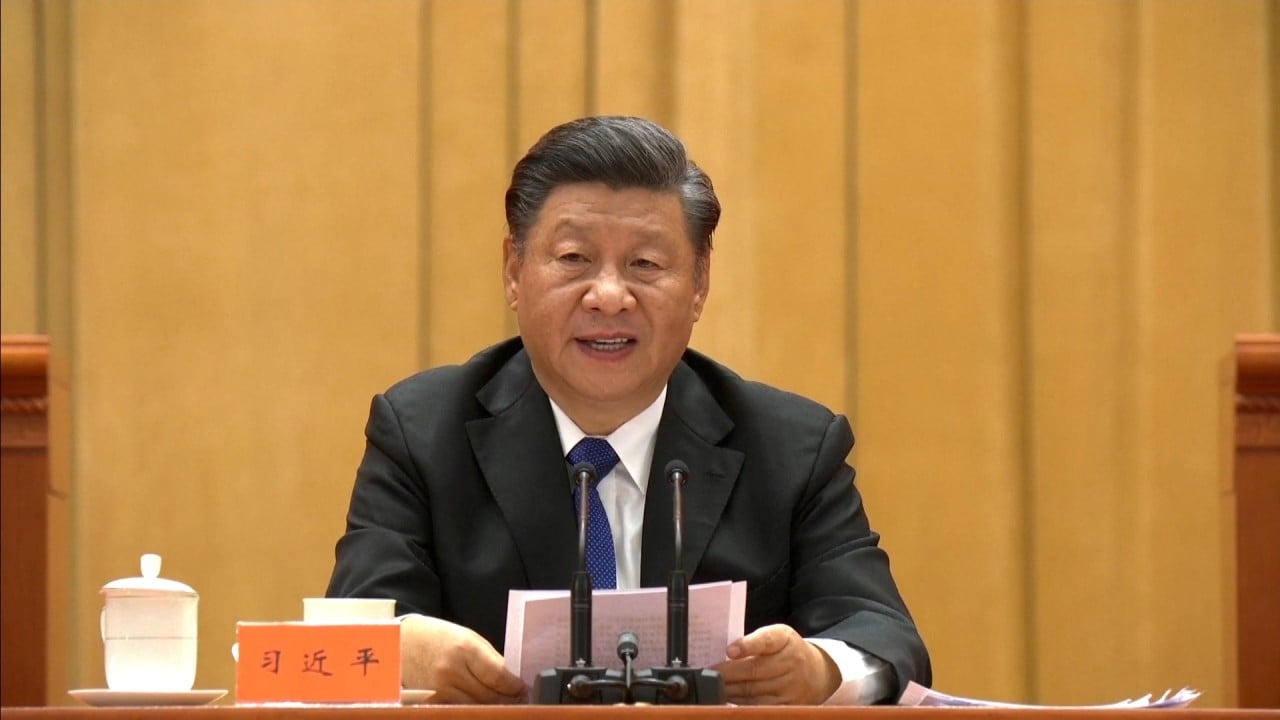
‘Diehard’ supporters of Taiwan independence face mainland China ban and criminal charges for life
- Beijing’s Taiwan Affairs Office says separatists will face criminal charges and they and their families will be banned from mainland, Hong Kong and Macau
- Premier Su Tseng-chang, Legislative Yuan president Yu Shyi-kun and Foreign Minister Joseph Wu are first on the blacklist for ‘malicious attacks’ on mainland
In a short statement on Friday, the Taiwan Affairs Office in Beijing said the mainland would punish people seen as part of the “diehard” Taiwanese pro-independence force, prohibiting them and their family members from entering the mainland and the two special administrative regions.
This comes after Beijing’s declaration last year that it was drawing up a blacklist of “diehard Taiwanese separatists” and their financial supporters.

“They and their affiliates will be restricted from cooperating with mainland organisations and individuals. They and their affiliates and those who offer financial support to them will never be allowed to gain any profit from the mainland,” office spokeswoman Zhu Fenglian said in the statement.
“The mainland will pursue criminal responsibility for the ‘Taiwan independence’ diehards in accordance with the law, which will be effective for life.”
Very few “diehards” such as the three named had tried their best to instigate cross-strait confrontation, maliciously attacked and slandered the mainland in seeking independence, and colluded with external forces to split the country, Zhu said.

“They are colluding with external forces to split the country and severely undermine cross-strait relations,” she said. “We are warning such Taiwan independence diehards that those who forget their ancestors, betray their motherland, or split the country will never end up well.”
Su and Yu responded with defiance.
“We will continue fighting for Taiwan. This is what we are supposed to do and we will not be threatened,” Su said.
In a Facebook post, Yu said it was an honour to be banned by the mainland.
Taiwan’s Mainland Affairs Council, which handles cross-strait relations, said in a statement that the move was a threat to Taiwanese people and would “only be counterproductive”.
“The Communist Party of China’s unilateral legislation on Taiwan has no binding force on the people of Taiwan,” the council said. “The [party] has always used coercive threats to pressure people who disagree with it. The people of Taiwan will never compromise.”
Taiwan hints US military is training 40 of its marines in Guam
Cross-strait tensions have been on the rise this year, with the People’s Liberation Army sending more than 200 military aircraft into the island’s air defence identification zone.
Even as Beijing denounced Tsai’s declaration as a political gesture, the United States last week reiterated its “rock solid” commitment to Taiwan’s defence and pledged to support the island’s bid to participate in international organisations.

03:55
Chinese President, Xi Jinping says peaceful reunification with Taiwan ‘must be realised’
Mainland observers earlier forecast that the growing acrimony could spur efforts in Beijing to use legislation to target independence-seeking politicians in Taiwan.
They said the blacklist would be based on the mainland’s existing anti-secession, criminal and national security laws, all of which classify separatist activities as a crime – with a possible punishment of life in prison.
The Anti-Secession Law was passed in 2005 and provides a legal framework for Beijing’s policies on Taiwan. But observers said a more specific and targeted law was needed to bring the accused to trial.
Zhu Songling, a professor with the Institute of Taiwan Studies at Beijing Union University, said the new ban signalled that Beijing would not be lenient in punishing Taiwanese separatists.
“It has a very clear and resolute attitude that it will crack down on Taiwan independence, and there is no room for compromise,” he said.
Zhu added that while the Taiwan Affairs Office statement only named three officials, the implications could be wider.
“It also sends a signal to people on both sides of the strait that the mainland is very clear on the issue of Taiwan independence,” he said. “That it will take action in accordance with the Anti-Secession Law, and will not tolerate Taiwan independence supporters having business ties with the mainland, gaining profit from the mainland, and then seeking Taiwan independence.”
Additional reporting by Lawrence Chung


